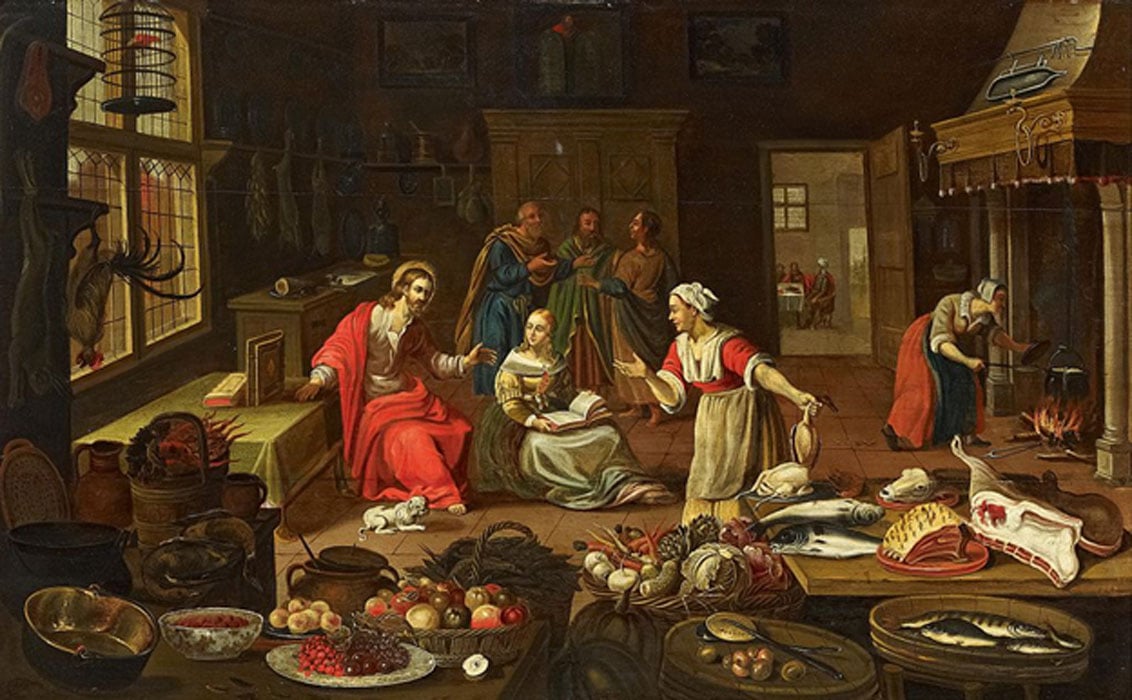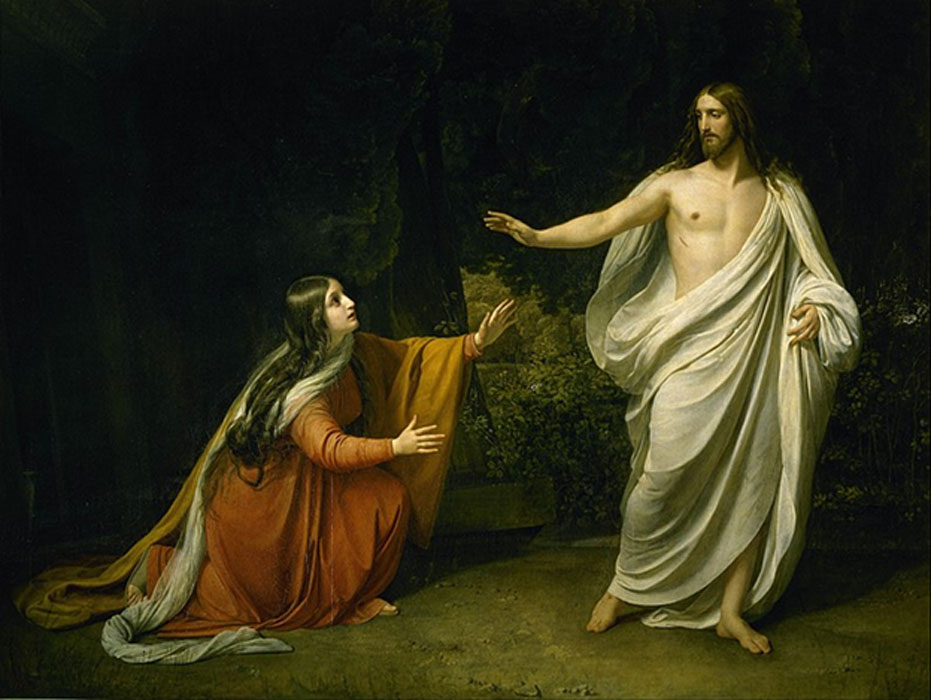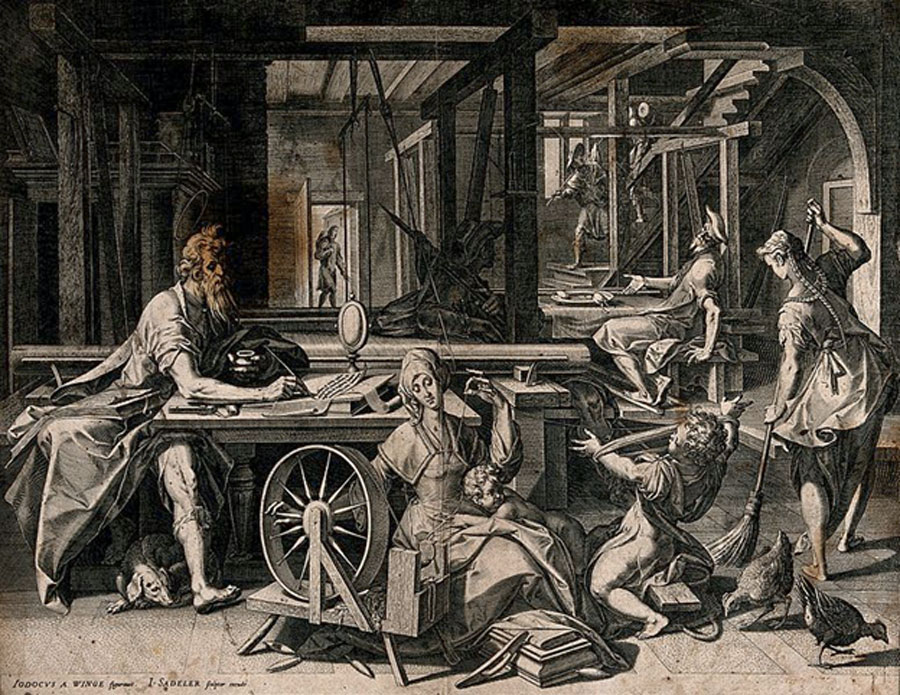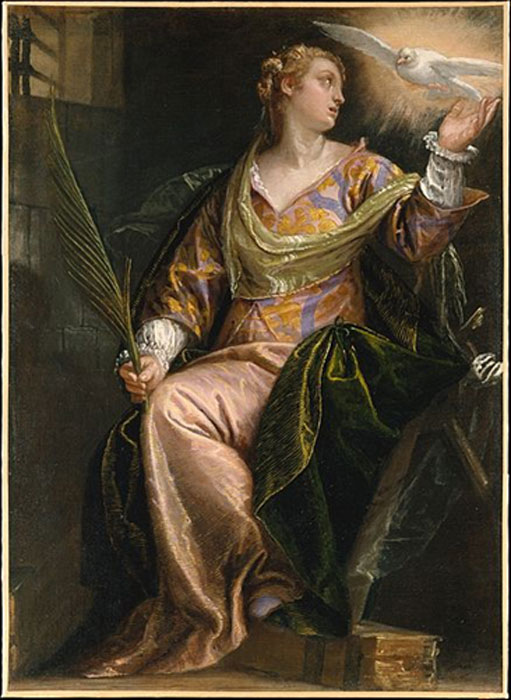
The Women in Jesus’ Life and Early Christianity: Patrona’s, Prostitutes and Princesses
Women have been important members of Christianity from the very beginning of the early Christian church. In fact, women were among Jesus’ earliest followers. Apart from learning from and speaking to women both in public and private, Jesus himself was also in the habit of teaching and eating meals with women as well as men. It was an unnamed woman who taught Jesus that the ministry of God belongs to all who have faith and not limited to particular groups and persons. (Mark 7:24-30; Matthew 15:21-28).

Christ's Appearance to Mary Magdalene after the Resurrection by Alexander Andreyevich Ivanov (1835) (Public Domain)
It would be a mistake to think of these women as merely meek and fragile. Not only did they show their strength in numbers, women did so in leadership positions as well. They remained firm when Jesus was arrested, even when his male disciples are said to have fled, and they accompanied him to the foot of the cross. It would also be a mistake to assume that the women were poor or powerless. Recognizing that dreams and ideals are not enough for the movement to survive without finances and support from people with a certain degree of power in society, Mary Magdalene, Joanna and Susanna, travelled with and financially supported the work and ministry of Jesus. Mary Magdalene was, in fact, a wealthy woman in her own right. Wealthy women such as Paula, Marcella, and Fabiola were also the financiers behind social services projects that organized religions would eventually become known for such as monasteries and convents and hospitals for the underprivileged. In a letter to James, Mary, mother of Jesus, shows her concern for economic justice by writing: “Religion that is pure and undefiled before God, the Father, is this: to care for orphans and widows in their distress, and to keep oneself unstained by the world.” (James 1:27)
The Founder, The Princess and the Entrepreneur
Married couple Priscilla and Aquila were missionaries who lived and worked with Paul on his journeys. Priscilla’s name precedes her husband’s in four of six instances. This suggests Priscilla’s prominence, or at least her equal status as her husband as, in ancient pairings, the husband’s name usually figures first. Priscilla, along with her husband, was instrumental in building the early church. In 1 Corinthians 16:19, Paul passes on the greetings of Priscilla and Aquila to their friends in Corinth, indicating that the couple were in his company. As Paul founded the church in Corinth, his inclusion of them in his greetings implies that Priscilla and Aquila were also involved in the founding of that church.

St. Paul is staying in the house of Aquila and his wife Priscilla, the family are making tents and St. Paul is writing. Engraving by J. Sadeler after Jodocus Winghe. (Wellcome Images/ CC BY-SA 4.0)
Women commemorated as saints from the early centuries of Christianity include several martyrs who suffered under the persecution of Christians in the Roman Empire, such as Agnes of Rome, Saint Cecilia, Agatha of Sicily and Blandina. Saint Catherine of Alexandria (circa 287 - 305 AD) was the daughter of King Costus and Queen Sabinella of Alexandria. Coming from an affluent family, Catherine received the finest education in arts, sciences and philosophy. Catherine would have used her prominent position to visit the Emperor Maxentius to convince him to convert to Christianity - something that would not have been possible without her position in society. Although Maxentius arranged for great philosophers, scholars and orators to dispute with her, Catherine’s intellect proved to be greater. Not happy with this development, Maxentius had her imprisoned and whipped. In prison, Catherine converted many people, including the emperor’s own wife. Maxentius later had her tortured and beheaded. The Passion of Perpetua and Felicity is one of the oldest and most notable early Christian texts as well as one of the earliest surviving documents to have been written by a woman in early Christianity. The text was written by Vibia Perpetua, a 22-year-old noblewoman as well as a mother of an infant she was nursing herself, and Felicity, a pregnant slave imprisoned with her. They were put to death along with others at Carthage in the Roman province of Africa.

Saint Catherine of Alexandria in Prison by Paolo Veronese (1528–1588) (Public Domain)




